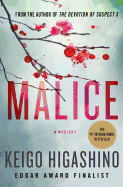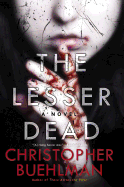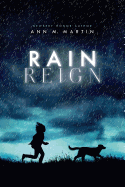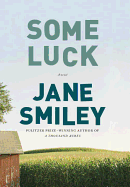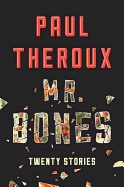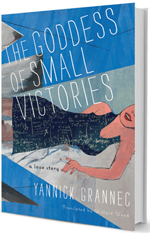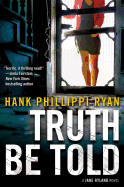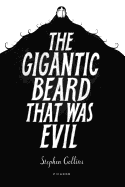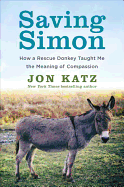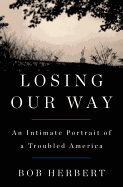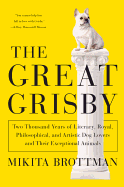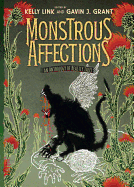Tuesday, October 14, 2014
Essayist, critic and poet Katha Pollitt is known for her incisive and often controversial writings on social and political issues. With her new book, Pro: Reclaiming Abortion Rights (Picador), she again steps into the fray. She writes that abortion has historically been part of "the secret underground life of women [that had to be] managed outside the law." Now, the U.S. is "in danger of forgetting how it used to be" and rolling back access to the procedure.
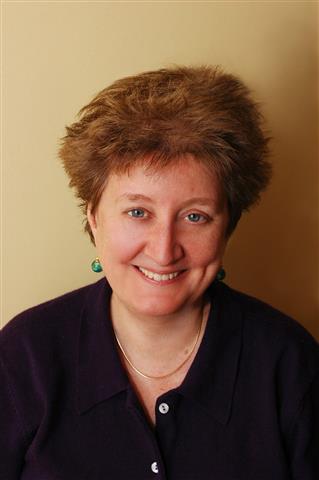 |
|
| Katha Pollitt | |
We recently spoke with Pollitt about her book. She explained, "With abortion becoming ever less available, more burdened with restrictions, and more expensive, more women are turning to DIY abortion by pills bought on the Internet or imported from Mexico. Not only is this potentially dangerous--the pills could be fake, the instructions could be wrong--but the women can be arrested."
Would we be surprised at the number of women who have had abortions, secretly or not? "About one in three U.S. women have had at least one abortion... most people know women who've had abortions--but they don't know they know. If more women spoke to friends and family about their abortions, though, it might help de-stigmatize it." Pollitt discovered her own mother's abortion only by reading her FBI file.
Pollitt noted, "To a far greater degree than most other Western nations, we have decided that women should individually bear most of the consequences of becoming a parent." Many Americans don't even want insurance companies to pay for birth control. She added, "Too many don't want to help women not have kids--or help them take care of them once they're here. It's as if we think kids are either a punishment or a luxury--don't want one, don't have sex! Can't afford them? Not my problem."
Whatever one's view on this hotly contested issue, Pollitt's book offers much to consider. --Marilyn Dahl, editor, Shelf Awareness for Readers
Some Luck
by Jane Smiley
Jane Smiley, who won the Pulitzer Prize for A Thousand Acres, again uses Iowa as her stage, this time for Some Luck, the first of a proposed trilogy that will cover 100 years of one family. In 1920, young Walter and Rosanna are starting to fill their little farmhouse with heirs. As the children grow, tiny Denby, Iowa, is buffeted by drought, Depression, war and change.
Salt-of-the-earth farmers, the Langdons lead typical Midwestern rural lives: nature, extended family and small-town society define their days. Smiley's characters are a microcosm of America, all facing sweeping changes. Should they swap their horses for a tractor? What will they do if the well runs dry? Is a hospital birth really safer? Walter and Rosanna's fortitude--and a little luck--sees them through.
Rosanna has six babies at the farm, but it's her firstborn, Frank, who transports the novel beyond Denby. Breathtakingly bright and handsome, he's also the child who defies tradition. He escapes the farm at 16 and eventually wins research grants at Iowa State. Smiley juxtaposes Frank's worldly experiences with the farm-bound Langdons' life. Her picture of mid-century America encompasses the mundane (the price of corn, Roseanne and Walter's mellowing marriage, the distinct characteristics of the children) and broader historical events (Chicago relatives embrace "The Party," Pearl Harbor propels Frank into the army).
Some Luck closes in 1953, as Frank's generation enjoys postwar prosperity and bears children, and Walter prepares for the next season's planting. Young Langdons and Smiley's keen eye for history guarantee rich sequels. --Cheryl Krocker McKeon, manager, Book Passage, San Francisco
Discover: This historical novel is the first in a trilogy featuring multiple generations of an Iowa farm family.
Mr. Bones: Twenty Stories
by Paul Theroux
Paul Theroux (The Lower River) strikes a vaguely sinister chord throughout Mr. Bones--a slow menace that builds to creepy denouements and unsettling epiphanies. Middle-aged cosmopolitan narrators return to childhoods burdened with the weight of exceeded expectations and uneasy consciences. Families in slow decline from the status quo of earned or inherited privilege hurtle to the edge of the domestic abyss.
In "Minor Watt," a wealthy entrepreneur and art collector going through a divorce discovers a passion for destroying valuable artifacts, arriving at the fascinating moral stance that "Destroying them meant he was the equal of the person who made them." The family in "Mr. Bones" watches as their father develops a vaudevillian alter ego that is more cruel and flamboyant than his regular self, but also more vital and fascinating. In "Rip It Up," two disenfranchised eighth graders develop a passion for bomb making; instead of following the usual creepy criminal riff, Theroux turns this into a study of the nature of popularity and the essence of what is cool. In "I'm the Meat, You're the Knife," Theroux begins with a former student telling tales to a supposedly beloved teacher as the teacher is in the throes of terminal dementia. The student's stories are increasingly lurid and violent, and the teacher grows frightened. Is this payback for sins of the past? Is the teacher some horrid criminal or is the student's own natural malevolence at play?
Paul Theroux is a master of unspoken and subterranean motivations bleeding their way out into the world in odd and unexpected ways, causing domestic collateral damage at every turn. --Donald Powell, freelance writer
Discover: A sinister short-story collection from an established master.
Tehran at Twilight
by Salar Abdoh
Salar Abdoh (The Poet Game) offers both political mystery and personal drama; Tehran at Twilight is a fascinating glimpse of contemporary Iran through the familiar story of childhood friends whose paths are beginning to diverge irreversibly.
The novel follows American university teacher Reza Malek on his journey back to Tehran, where his old friend Sina Zafa has requested his help in a complex scheme. Though both men fled Iran as children and attended school together in the U.S., they have since developed wildly different political views. Reza has returned periodically to the Middle East as a reporter and interpreter. Meanwhile, Sina has edged closer to the ranks of religious extremists who openly and violently oppose the West. When Sina asks Reza for assistance managing the large swaths of property his family acquired before the revolution, this seems to imply that his unspoken future plans may lead him to early death. Reza has grown accustomed to his safe, comfortable life in Harlem and is reluctant to become involved in Sina's murky affairs, but their friendship has remained strong enough that he's willing to risk losing his job and life to help.
In some ways, Reza's experience mirrors the author's. Abdoh was also born in Iran and now splits his time between Tehran and New York City, where he serves as co-director of the Creative Writing MFA program at the City College of New York. Likely this unusual perspective contributes to his protagonist's nuanced and difficult relationship with his home country. When contemplating whether or not to return to help Sina, he laments, "Tehran had become an addiction." --Annie Atherton
Discover: Two friends navigate Iran's dangerous political underground.
The Goddess of Small Victories
by Yannick Grannec
Kurt Gödel was a mathematician, logician and philosopher, best known for his incompleteness theorem, and often referred to as one of the greatest logicians since Aristotle. Born in Austria in 1906, he immigrated to the United States in 1940 to escape Hitler's growing power and to pursue his scholarly work. Plagued by mental illness but also highly accomplished in his field, he would easily make an interesting subject to pursue. But Yannick Grannec's first novel, The Goddess of Small Victories, is not about Kurt Gödel; it is about his wife, Adele.
Adele was six years older than Kurt, and was employed as a dancer at a cabaret when they met in 1927. They were a couple for more than a decade (during which time she nursed him through several rounds of institutionalization) before they married, with the continuing disapproval of his family. Adele would face rejection and isolation in the academic community as well, particularly when the couple finally settled at Princeton, where he worked at the Princeton Institute for Advanced Study (IAS).
These details are a matter of historical record. Grannec's foray into fiction begins with her other protagonist: it is 1980, Gödel has recently died of anorexia, and Anna Roth, an employee at the IAS, has been tasked with recovering Gödel's archives from his widow. Adele lives in a nursing home, and continues to hold a grudge against the academic establishment that shunned her; she is known to be a prickly old woman, and at first lives up to her reputation. But she sees something she recognizes in Anna, the daughter of two egomaniacal Princeton professors, who never felt that she fit into that society, being a more timid sort. Gradually, as Anna makes regular visits to the nursing home, the two women begin to open up to one another. Adele calls it a trade: she'll tell her story if Anna tells hers. Chapters of The Goddess of Small Victories alternate between a third-person view of Anna's visits to Adele in 1980, and a first-person telling of Adele's story as it happened chronologically, beginning in 1928.
In this way, "the younger woman" (as Anna is often labeled) gets to visit Adele's past worlds: Vienna in the 1930's, postwar Princeton, McCarthyism, the Cold War; the difficulties of being an immigrant with poor English, the thrill of close friendship with Einstein and other luminaries and, centrally, the challenge of marriage to a tortured genius. Gödel is concerned with the infinite, but unable to handle the minutiae of his life: he is a consistently and increasingly troubled man--gifted, but also cold and demanding. He suffers from depression and paranoia, starves himself, meticulously tracks his body temperature and bowel activity, and refuses to see anyone outside a small circle that includes Einstein, Oskar Morgenstern, Robert Oppenheimer and their wives. He harangues his friends with conspiracy theories and an insistent rehashing of his unpopular notions. These few individuals naturally compose Adele's entire social world, as well. Gödel tests Adele mightily, but in the end her love persists, as does her belief in infinity (a popular topic in the Gödel marriage and within their intellectual circle).
In exchange, Adele enjoys hearing about Anna's life, though it has been marked by broken relationships and fear. The elder woman is outspoken, where the younger is reticent; Adele is enlivened by the challenge of spicing up Anna's professional and love lives. Anna, as it turns out, has had a gifted-but-troubled mathematician in her own life as well. As the book and the women's relationship unfold, the reader's perspective moves more deeply inside Adele's head, hearing her more intimate thoughts and becoming privy to her fears and insecurities, which increase as she ages and her marriage disappoints her. Anna and Adele make a journey together, and soon Gödel's archives are no longer the point (except for Anna's employer).
In an author's note at the end, Grannec succinctly outlines which parts of the story are historically confirmed, which are relatively safe conjectures, and which she has created. Sticklers for historical accuracy should be satisfied. The translation from French to English by Willard Wood is smooth, establishing appropriate voices for the two different protagonists, and creating the evolving atmospheres of nervousness, fear and, eventually, desperation that characterize the Gödel household.
In the end, The Goddess of Small Victories delicately evokes both Adele's varied experiences, in historical context, and also Anna's more circumscribed life, which leaves room for future decision-making. While light is shed on the life and work of Kurt Gödel, he takes a backseat to his dynamic wife in Grannec's compassionate telling. The finer technical details of Gödel's work are outlined in narrative form, as Gödel reluctantly tries to tutor Adele, or discusses theories of philosophy with Einstein and the others. (Grannec also inserts footnotes regularly to offer further explanation, or to attribute quotations.) These mathematical and philosophical dialogues, the reader is reminded, are oversimplified; but they are enough to either whet the appetite, or impress upon one the magnitude of Gödel's genius. The stars of this story, however, are two strong and intriguing women, who are stronger together. --Julia Jenkins
Mystery & Thriller
Malice
by Keigo Higashino, transl. by Alexander O. Smith
In the first of a new series for Japanese author Keigo Higashino (nominated for an Edgar for The Devotion of Suspect X), bestselling novelist Kunihiko Hidaka is found dead inside his locked office by his wife and an old childhood friend, Osamu Nonoguchi, also an author. Police detective Kyochiro Kaga quickly zeroes in on the prime murder suspect and gets a confession, though he finds some details in the story at odds with the evidence. Worse, the killer refuses to give a motive, and without one, Kaga doesn't think he can get a conviction.
Kaga delves into Hidaka's and Nonoguchi's shared past, going back to their elementary-school years. What he finds are conflicting, decades-spanning stories of bullying, jealousy, infidelity and, like the novel's title, just plain malice.
The story unfolds via its two narrators--Nonoguchi and Detective Kaga. It's a classic cat-and-mouse game, with Nonoguchi doing his best to obfuscate while Kaga slowly but surely cuts through to the truth. Kaga is like a Japanese Columbo, repeatedly saying he's not bright enough to grasp the literary brilliance of Hidaka's work (which he has to read as part of the investigation), but then he'll ask just one more question that reveals how sharp his mind is. He's certainly ahead of readers, because even near the end, the truth of the mystery remains elusive. When Kaga's solution is finally revealed, it's quietly devastating. The detective is an engaging protagonist, and we look forward to following him in future installments. --Elyse Dinh-McCrillis, blogger at Pop Culture Nerd
Discover: An engrossing whydunit about a murdered bestselling Japanese author from a bestselling Japanese author.
Truth Be Told
by Hank Phillippi Ryan
An eviction, a cold case and a suspicious confession stir up trouble in Truth Be Told, Hank Phillippi Ryan's third mystery featuring ace reporter Jane Ryland and her would-be beau, police detective Jake Brogan.
While Jane tries to adjust to the moment-to-moment pace of writing for the Register's website and locks horns with her unethical editor, Jake tries to determine whether the man who just confessed to the "Lilac Sunday" murder, which Jake's grandfather failed to solve 20 years ago, is the real killer. Both find their concerns sidelined when dead bodies start turning up in vacant repossessed homes. Meanwhile, mortgage officer Lizzie McDivitt scams her employer, shifting bank funds to make families nearing foreclosure appear current on their payments, and learns that her coworker and new boyfriend, Aaron, may be involved in a much less altruistic scheme. As Jake tries to bring closure to the past, Jane's low-profile story about bank customer service threatens to expose the corruption beneath the surface and puts her in the murderer's sights.
Ryan (The Wrong Girl) recasts Jake and Jane's will-they-won't-they tension (by now, they definitely have); at this point, the question is whether they'll lose their jobs if their employers discover the relationship. Peter Hardesty, a widowed lawyer involved with both the Lilac Sunday and eviction murder cases, also causes friction when he falls for Jane. Ryan keeps readers in suspense--for both the mystery and the romance--as Jake and Jane furiously chase after the truth. --Jaclyn Fulwood, blogger at Infinite Reads
Discover: A reporter juggles a murder investigation, a real-estate scam and the possibility of a relationship with a police detective.
Science Fiction & Fantasy
The Lesser Dead
by Christopher Buehlman
For those who long for bloody and ghoulish vampire stories, Christopher Buehlman (The Necromancer's House; Those Across the River) delivers with this disturbing and fast-paced story set in 1978 New York City. Turned at the age of 14, Joey Peacock glamours victims into believing he's anywhere between 10 and 22 as he prowls the seedier parts of the city, where he dances in discos and punk rock bars in search of his evening meal. Living in abandoned subway stations along with a group of other vampires, life for Joey is routine. Most nights he has a quick bite and some sex, and two or three times a month he spends evenings with the Bakers, who "had the biggest veins, the weakest minds, and the most comfortable furniture on the East Side."
One night, while riding the subway, Joey sees something that scares him: three little kids, each no more than seven years old, charming their prey. A chill runs through Joey's body; children aren't supposed to be turned. The pace quickens, the blood flows more readily, and readers are swept along through the train tunnels, sewers and abandoned buildings with dizzying speed and finesse as Joey and his friends gradually discover just who these children are and what they mean to do, not only to their human targets, but to Joey's enclave of vampires as well. Buehlman's novel is hideous in the most entertaining way, and skillfully reestablishes that vampires are not charming creatures one falls in love with, but monsters of epic proportions. --Lee E. Cart, freelance writer and book reviewer
Discover: A creepy and disturbing stay-up-all-night-to-finish-it vampire tale.
Graphic Books
The Gigantic Beard that Was Evil
by Stephen Collins
Let's start with a face: Dave's face, Dave who falls just short of alopecia universalis, hairless apart from his eyebrows and one tiny hair between his nose and upper lip. Dave wears a wig and lives alone; at night, he sits at a table overlooking the street, and he sketches what he sees. Dave lives right at the edge of a place called Here, where everything is neat, tidy, in the right place. Just outside Here is the sea, then the Edge of the Sea, and then There, which is disorder, chaos, evil. Beyond that, nothing is known.
Dave lives his quiet life, going to work, presenting reports on data, going home, falling asleep at his table. Everything is orderly, except for that one hair. Whether he cuts it, shaves it or waxes it, within half an hour it's back, exactly the same--no longer, no shorter. Of course, just one hair is hardly evil, but when a profusion of equally indestructible hairs begin to rapidly emerge, it can mean only chaos.
A psychologist comes to help, promising privacy but promptly making Dave famous. Dave and the people of Here struggle to find meaning in the madness, calling into question not only how to trim the untrimmable, but how to reconcile and accept the changes the beard is stirring within them. In this debut graphic novel, Stephen Collins's black-and-white illustrations and simple, rhythmic text make for a moving and remarkably funny examination of conformity, safety, uncertainty and--yes--what happens when a man grows a beard so big that it threatens to smother entire city blocks. --Matthew Tiffany, LCPC, writer for Condalmo and psychotherapist
Discover: A compelling and funny spin on Kafka's Metamorphosis involving some remarkable (and possibly wicked) facial hair.
Biography & Memoir
Saving Simon: How a Rescue Donkey Taught Me the Meaning of Compassion
by Jon Katz
When Jon Katz (Dancing Dogs) met Simon, the donkey had been given up for dead. Katz, author of dozens of animal-themed books and a blog from his farm, Bedlam, was the only one the animal control officer thought would take responsibility for the poor beast. Katz and his wife, defying odds, adopted the crippled, emaciated, mangy animal, and Saving Simon--the rescue and the book--began.
"I knew I had to bring him back, heal him, to reaffirm the better parts of being human," Katz writes. A down-on-his-luck farmer had ignored Simon, assuming he'd died in his cramped pen. While Katz was enraged at the farmer, he was also skeptical of judgmental "rescue culture" types. As he dedicated himself to the laborious process of healing Simon, Katz pondered the lessons inherent in the animal-man relationship. What was compassion, and why do some have it and others don't? And why are humans so loving to animals but often not empathetic to other humans?
Katz reviews a variety of legendary donkeys: Jesus's donkey, also a rescue; Sancho Panza's "Dapple" in Don Quixote; and the wise donkeys extolled by the Hebrew mystics. He balances these spiritual and philosophical reflections with the day-to-day antics of Simon and his farm pals (the dogs, cats, chickens, sheep and two other donkeys he joins at the upstate New York farm, and the blind pony and her seeing-eye border collie that came later).
"Simon is a teacher sent to me in the form of a donkey," Katz concludes, crediting the brown-eyed, soft-nosed creature with leading him to a deeper understanding of compassion and righteousness. --Cheryl Krocker McKeon, manager, Book Passage, San Francisco
Discover: Jon Katz's newest four-legged family member, a rescue donkey that prompts him to examine the nature of human empathy.
Political Science
Losing Our Way: An Intimate Portrait of a Troubled America
by Bob Herbert
Former New York Times columnist Bob Herbert (Promises Betrayed) believes the United States has lost its way and needs to be reimagined. Using data and personal stories, he explains why in Losing Our Way.
In the last four decades, many of the wealthiest members of society have worked toward de-unionization and deregulation. They campaigned to cut funding for government programs and lobbied against increasing both taxes and the minimum wage while supporting unlimited campaign spending. Their efforts are in the name of capitalism, and theoretically, capitalist principles will eventually benefit all members of society. The United States in the 21st century is evidence that this isn't the case.
Herbert highlights four major areas in need of overhaul: the country's physical infrastructure, its education system, its attitude toward war and its gross economic imbalance. In each realm, Herbert shares mortifying data that confirm the dire circumstances, but he also tells the stories of individuals affected by deplorable conditions, such as Mercedes Gorden, who was a victim of the I-35 bridge collapse in Minnesota, or Dan Berschinski, who lost three limbs serving in the War on Terror. These personal stories drive home Herbert's point on an intimate, human level better than cold statistics could alone.
Herbert believes change can come only if people organize and fight back, like the abolitionist, civil rights or the women's movements. Losing Our Way, like the current state of the union, can be unsettling, but it is also eye-opening, motivating and the perfect starting point for anyone determined to see the United States on a better economic path. --Jen Forbus of Jen's Book Thoughts
Discover: One man's attempt to rally the country's middle class and poor in an effort to force desperately needed national change.
Pets
The Great Grisby: Two Thousand Years of Literary, Royal, Philosophical, and Artistic Dog Lovers and Their Exceptional Animals
by Mikita Brottman
Part history book and part memoir, The Great Grisby is a fascinating exploration of how dogs have changed people and the world in myriad ways. Mikita Brottman (Thirteen Girls) acquired her first dog, Grisby--a lovable French bulldog--when she was close to 40 years old. Her eight-year "love affair" with Grisby encouraged her better to understand their mutual affinity and the many roles dogs have played in the lives of other human companions. In the process, she unearthed a trove of information about the ineffable bond between notable people and their canines.
Over 26 short chapters, Brottman summarizes and analyzes many stories, such as avant-gardists Gertrude Stein and Alice B. Toklas and their string of standard poodles; poet Elizabeth Barrett Browning and her indestructible bond with her cocker spaniel, Flush; philosopher Arthur Schopenhauer and his attachment to all his dogs, always named Atma; Freud's late-life fondness for chows, especially females; Picasso and his curious relationship with Lump, his beloved dachshund; and aristocratic dogs such as Prince Albert's greyhound and Russian Princess Tatiana's French bulldog (given to her by a grateful soldier). Also included are references to the dogs of politicians and in-depth depictions of canines featured in literature from greats ranging from Charles Dickens to Albert Camus.
Throughout the narrative, the author shares lively, personal anecdotes about Grisby and how he served as "a buffer... and a bridge," keeping Brottman connected to a world she concludes is generally more empathic because of human-canine kinship. --Kathleen Gerard, blogger at Reading Between the Lines
Discover: A memoir and history book that entertainingly explores the connection between dogs and their human companions.
Children's & Young Adult
Rain Reign
by Ann M. Martin
This bittersweet tale, recounted by 11-year-old Rose Howard in a purposeful storyteller's style, reveals a young girl trying her best to keep it together.
Rose needs unbroken rules, prime numbers and homonyms to get through her days. And, since last year, she also needs the yellow-furred dog she named Rain (homonyms: rein and reign). To her father's frustration, Rose is on the high-functioning autism spectrum. He doesn't understand why she can't stop talking incessantly about homonyms, stop shouting sequences of prime numbers, stop asking him so many questions. So when he comes home quiet or his eyes get "black and hard," Rose and Rain both know to keep their distance. Some of Rose's challenges are specific to her autism, but her desire to fit in and be accepted is universal. Underneath her obsessions and seemingly robot-like outbursts she is smart, sensitive and eager to please. Her soft-spoken Uncle Weldon is one of the few in her charmed circle: he listens, he encourages her, and he drives her to and from school every day. The nuanced portrayal of that solid, loving relationship is sure to have everyone wishing for an Uncle Weldon of one's own.
When a devastating storm rips through the small community of Hatford, N.Y., the holes in Rose's life become that much more jagged. Martin's clear, true, immediate writing places readers dead-center in the emotional maelstrom with Rose, who is much more than her father sees and braver than she knows. --Karin Snelson, children's book editor and reviewer
Discover: An autistic girl with a penchant for homonyms will steal (steel) hearts in Newbery Honor author Ann M. Martin's latest novel.
Monstrous Affections
by Kelly Link and Gavin J. Grant, editors
Monsters "exist in violation of the way we think things ought to be," write Kelly Link and Gavin J. Grant (Steampunk!), editors of another delightful (often frightful) anthology of short fantasy fiction--this time about some lovable monsters, the choices they pose and the humans they meet.
The introduction to this anthology of 15 stories provides information (and an entertaining pop quiz) about the contents. The well-known authors chose to portray monsters of different types: vampires, embedded spirits and harpies, among others. The strong writing brims with misdirection, humor, horrors and twisty endings. Paolo Bacigalupi's "Moriabe's Children" raises questions about the definition of family: Can the krackens of the deep be kinder to a girl than her own mother is? Holly Black's rollicking "Ten Rules for Being an Intergalactic Smuggler (The Successful Kind)" prepares readers to survive a pirate attack on a smuggler's ship (e.g., "Don't hide in the cargo hold, because everybody wants what's in the cargo hold"). "Mothers, Lock up Your Daughters Because They Are Terrifying" by Alice Sola Kim features a group of friends who met at an event for Korean adoptees, who summon a spirit (called "Mom") that literally takes possession of them--to the girls' increasing dismay.
This substantial volume will provide older teens--and adults--with hours of thoroughly enjoyable reading. A monstrously entertaining anthology. --Ellen Loughran
Discover: An anthology distinguished by a highly creative approach to monsters that will appeal to teens and adults alike.


